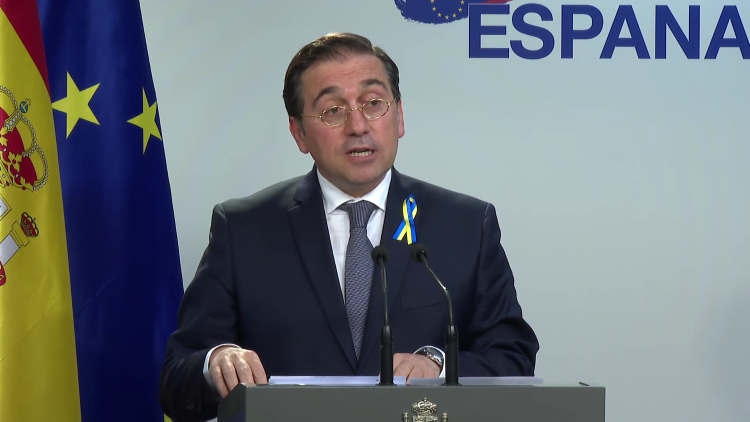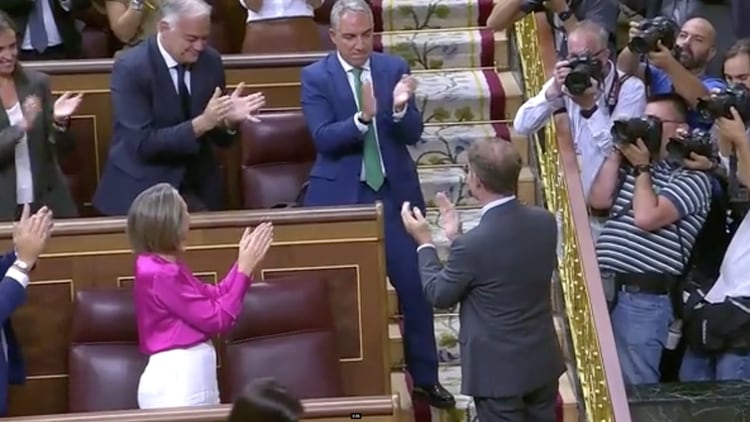The Diplomat
The acting Minister of Foreign Affairs, José Manuel Albares, will participate today in Murcia in the informal ministerial meeting of the General Affairs Council, organized by the Spanish Presidency of the EU and which will address, among other issues, “the need to prepare internally for a possible European Union with up to 36 Member States”.
Murcia will host this informal meeting from today until tomorrow, in which, in addition to the enlargement of the European Union, issues related to the Open Strategic Autonomy and the Cohesion Policy after 2027, the so-called Cohesion 2.0, will be analyzed. According to the Spanish Presidency of the Council of the EU, the discussions will take place against the backdrop of the informal meeting of heads of state and government to be held in Granada on October 6, where enlargement and the SAA will also be the main topics.
The main focus of the informal ministerial meeting on its first day will be on “the need to prepare internally for a possible European Union with up to 36 Member States and, at the same time, to strengthen support for the EU’s relationship with the candidate countries, with the rest of the world and with third countries”, the Spanish Presidency stressed. “These two interrelated issues form the basis for the preparation of the new Strategic Agenda of the European Union, elements of which are being outlined under the Spanish Presidency and will be approved in 2024,” it added.
The informal ministerial meeting in Murcia will consist of a series of working tables with the presence of the Commissioner for Enlargement and Neighborhood Policy, Olivér Várhelyi, and each will deal with one of the main issues in preparing for a possible enlargement: the impact of enlargement on EU policies, the concept of gradual integration (how to bring the candidate countries closer to the EU during the long accession process) and the institutional issues that need to be reformed in order for the EU to be ready for the future enlargement.
At the meeting, the report commissioned by the French and German governments from a dozen experts, which was released last week, will be analysed. In it, the ‘Group of Twelve’ considers that “the European Union is not ready to welcome new members, either institutionally or politically” because it is currently facing a “critical juncture marked by geopolitical changes, transnational crises and internal complexities”. Although enlargement is high on the political agenda, the experts argue that approving it now without a revolution would be a catastrophic mistake. They argue that “substantial reforms are needed, including preparations for the revision of the Treaties” and envisaging a four-speed Union.
Apart from that, the working lunch, which will be attended by Commission Vice-President Maroš Šefčovič, will focus on the preparation of the informal meeting of heads of state and government in Grenada, with special attention to two aspects: the European Political Community summit, which will be held on October 5 also in Grenada, and Open Strategic Autonomy, which will form the core of the discussion among the heads of state and government at the meeting on October 6. As a basis for reflection for the discussion of the Heads of State and Government in Granada, the Spanish Presidency will provide the report Resilient EU 2030, a forward-looking approach to strengthen Open Strategic Autonomy and Global Leadership.
Friday: Cohesion Policy
Tomorrow, Friday, September 29, the future of Cohesion Policy after 2027, when a new financial framework begins, will be discussed. Cohesion Policy (CP) currently coexists with the Recovery and Resilience Mechanism (RRM) and both are key elements for the development and construction of an integrated EU. For this reason, the objective of the Spanish Presidency of the Council of the EU is to analyze the results and lessons learned from the operation of the current Cohesion Policy and the Recovery and Resilience Mechanism in order to respond to the challenges that lie ahead.
These challenges include: strengthening regional growth, balanced and harmonious among regions; advancing consistency and coherence between regional and national objectives, reconciling the traditionally regional approach of Cohesion Policy with a more aggregated focus at the country level; and the importance of territorial cooperation. “It is necessary to continue to ensure that Member States, regions and contiguous or bordering localities continue to strengthen cooperation between them, designing intervention projects that respond to their specific realities,” the Presidency added.






